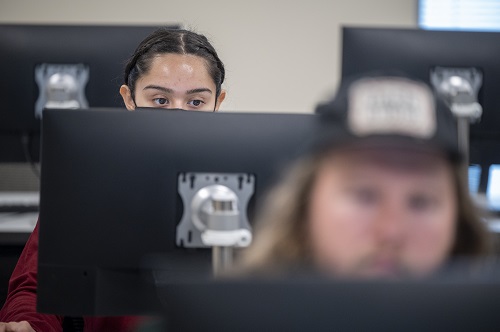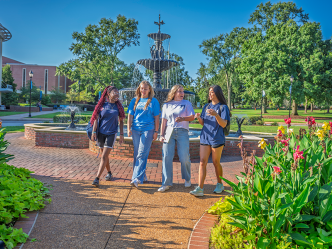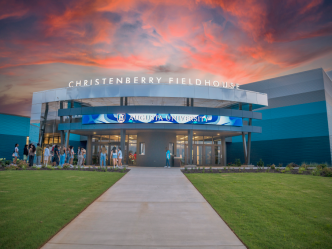Recruiting new students into nuclear science programs is the main goal of Augusta University’s new WORCshop@AU program. In conjunction with Savannah River Nuclear Solutions and area high schools, this pilot program aims to get students engaged with a real-life project that could eventually lead them to working in the field.
Mindy Mets is director of regional workforce programs with the Savannah River Site Community Reuse Organization, a private and nonprofit group that administers and oversees the distribution of a $5 million grant funded by the National Nuclear Security Administration to participating colleges and universities around the Savannah River Site.
“It helps high school students see fields they would have never considered potentially before. It also gets to be more interesting to learn the things we’re supposed to, but to learn it with respect to real world problems right where you live,” said Mets.
Evans High School, Hephzibah High School, Augusta Preparatory Day School, Edmund Burke Academy and Richmond County Technical Career Magnet School are involved in the project, which began in the summer.
For the project, high school teachers were given a real problem SRNS is looking to solve: a transportation issue. SRNS is about to have an influx of employees, and transporting them from one part of their facility to another is a major concern.
Teachers were asked to align some of their regular course standards so they could assign this project to students in the fall.
When the school year started, SRNS engineers started going into the classroom on a weekly basis to serve as mentors to help teachers and students work through the transportation issue and find a solution.
“From the standpoint of the SRNS and their willingness to involve their employees, it’s a huge win there. They have some incredible young people across all spectrums that work at the site, and for them to be involved in the classroom, it helps the community better understand the work they do,” said Mets.
“Students are the workforce of the future, so we appreciate the employees who are donating their time to this important effort,” said Taylor Rice, SRNS education outreach program specialist. “We want to ensure educators are equipped with knowledge and information about future workforce needs, particularly those at SRS, that will help them as they influence student career pathways.”
Dr. Joseph Newton, assistant professor of physics at Augusta University’s College of Science and Mathematics, received the WORC grant and brought in Dr. Ashley Gess, assistant professor of STEM/STEAM education at AU’s College of Education, to help facilitate the project.
Gess said one challenge was getting teachers, most of whom have never worked in the industry, to interrupt their teaching style and receive a new training skill set.
“The teachers themselves had to work through the problem as students this summer. Then they’ve been implementing it using their standards as framework,” said Gess. “These teachers will be bringing their students on campus Dec. 9 to present their solutions to the problem in front of a panel of SRNS experts.”
James Mason is a chemistry teacher at Augusta Prep and has done bigger projects with his students in the past. Mason thought this would be interesting as well, so he jumped at the chance to be a part of it. Having engineers come to his classroom has been a welcome addition.
“We have four fantastic engineers that come out to visit us. They’re willing to do just about anything to help the kids. The kids have really embraced them. It’s been a great experience,” said Mason.
While it may not be readily apparent to the students what they’re trying to accomplish, Mason feels most will be able to connect the dots when they reach the end of the project.
“I think they’re getting more out of it than they realize. I think as we’re closing in on it, they’re going to kind of flip the switch and realize, hey, wait a minute, all this stuff is connecting better than we thought,” said Mason.
Mason has already had students express interest in the field well beyond high school.
Though this is only the first year of the WORCshop@AU program, Mets is confident it could continue in the future and even build up the local workforce for years to come.
“Students are only getting exposed to a small portion of what goes on at the site, but they’ll understand it better. It demystifies it so to speak. It makes it more real and there’s so many great things going on in our community so there are tremendous opportunities for young people in terms of careers right here,” said Mets.
 Augusta University
Augusta University




